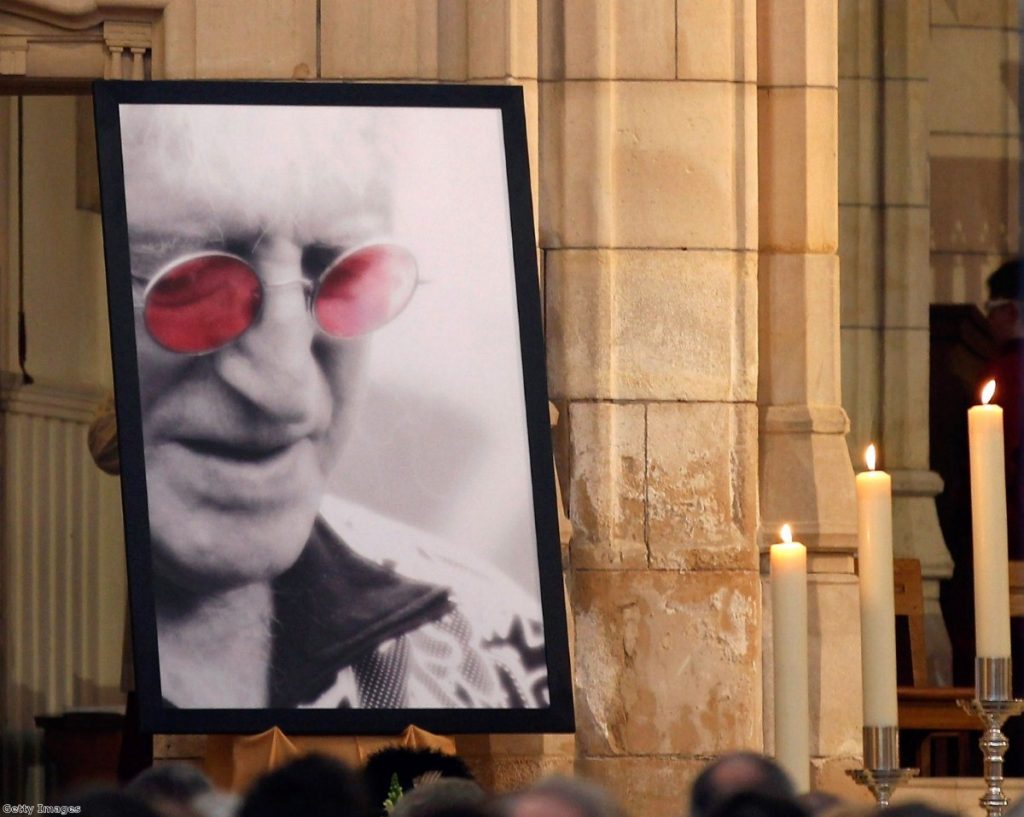Everything you need to know about the Jimmy Savile row in five minutes
What's the background?
Jimmy Savile was a well-loved TV presenter whose long stints on Top of the Pops and Jim'll Fix It earned him national treasure status. Since his death reports have emerged of a pattern of child abuse, dating from 1959 until 2006. There are concerns the media establishment – and especially the BBC – ignored complaints of his behaviour, which may have affected hundred of girls and some boys. His charity work gave him full access to the children's wards at Stoke Mandeville hospital, where he is also thought to have assaulted children.
How did the story come out?
An ITV broadcast – Exposure: The Other Side of Jimmy Savile – was screened on October 3rd 2012 and instantly blew the web of secrets and rumours apart. In the programme, several women alleged Savile had assaulted them when they were underage. In the days that followed, police opened up an investigation with 400 lines of inquiry centring on 200 potential victims. Savile's grave in Scarborough has been removed, according to family wishes, and several plaques and footpaths named after the famous entertainer have been changed.


Why is the BBC getting such a kicking?
Most of Jimmy Savile's career was spent at the BBC and there are widespread suspicions that senior staff at the corporation may have failed to act on complaints about the presenter because of his status. But the more dangerous questions around the BBC concern much more recent events – specifically the decision to drop a six-week investigation into the presenter by Newsnight in December 2011.
Why was the Newsnight programme dropped?
We're not sure. The BBC says 'editorial reasons'. That could mean anything, but it usually suggests the sources didn't stack up. A Panorama programme tonight will show how Newsnight editor Peter Rippon went from laying the ground for transmission to getting jitters five days later and dropping it altogether not long after that. Email communications show Rippon became concerned with whether the Crown Prosecution Service (CPS) dropped the case because Savile was old and frail or because of lack of evidence. When the CPS said it was the latter – contrary to the statements of the alleged victims – Rippon pulled the show. Respected investigative reporter Meirion Jones, who worked on the programme, said it was always about whether Savile was a paedophile, not the police investigations. The suspicion is that Rippon was lent on.
There is some evidence for this, although it is hardly of the slam-dunk variety. On December 2nd, a day after Rippon pulled editing on the programme, head of news Helen Boaden toldEntwistle – then director of BBC Vision and now director-general of the BBC – that broadcasting the film would ruin their Christmas schedule, which included some tributes to the recently deceased presenter. On the other hand, Rippon may have felt the alleged victims Newsnight had interviewed were not reliable enough to depend on exclusively for a programme taking on a recently-deceased national treasure. The contradiction between their account of the CPS investigation and that of prosecutors themselves could have been the final straw.
What is the BBC doing now?
Entwistle is having a baptism of fire as the new director-general. He has launched two internal inquiries at the BBC using external leads. The first is on the matter of the Newsnight investigation, the second on the culture of the BBC which allowed Savile to get away with it. The latter must wait until the police investigation is completed before it can start its work. A third strand to the inquiries will look into allegations of sexism and harassment at the BBC.
Can the BBC survive the row?
Veteran BBC man John Simpson dubbed the row the "worst crisis that I can remember in my nearly 50 years at the BBC". That is not an exaggeration. As Simpson points out, the BBC is one of the most trusted institutions in the country and the questions coming its way could damage that relationship. The BBC response since the Newsnight story broke has been less than encouraging. Rippon wrote on a BBC blog that the programme only interviewed women who had already spoken to police and that no new information had been uncovered – both points denied by Jones. Entwistle's claim in a staff memo that the Newsnight investigation was an assessment of the police inquiries was also probably false – researchers say it was into whether Savile was a paedophile. As things stand, the allegations are not definitive enough to ruin the BBC's reputation, but if new scandals emerge the corporation could find itself in a very dangerous place indeed.
Who else has questions to answer?
The BBC is obviously the centre of the scandal because it was Savile's employer, but suspicions around the presenter were present in all quarter of the media industry. A Sun investigation was reportedly called off because journalists were wary of attacking a national treasure without sufficient evidence. The Department of Health is running an investigation in to how Savile was allowed to lead a taskforce on management of the high security psychiatric hospital Broadmoor in 1998. Edwina Currie was responsible for that decision and is facing questions of her own.
What happens next?
Entwistle will answer questions in front of the culture, media and sport committee in parliament tomorrow. His answers may set the scene for the next chapter of the row.












